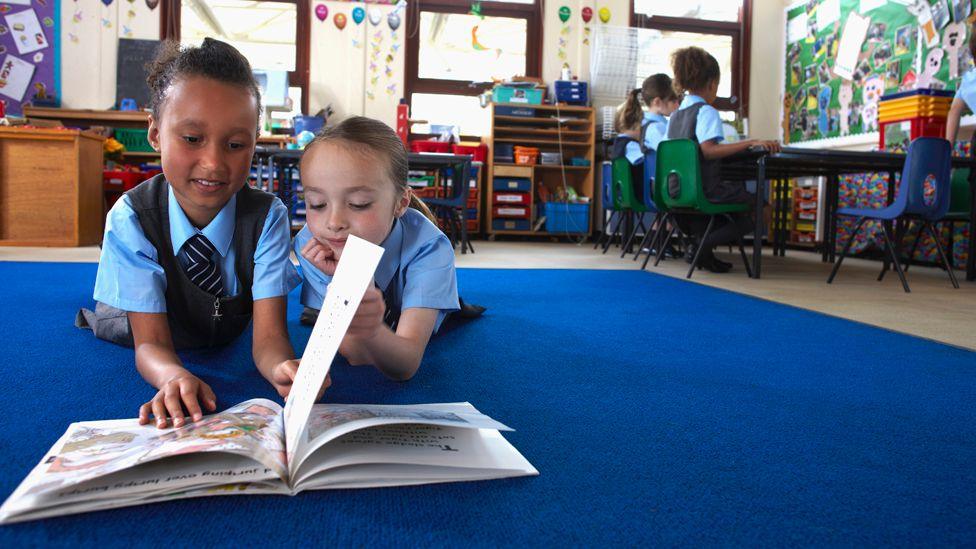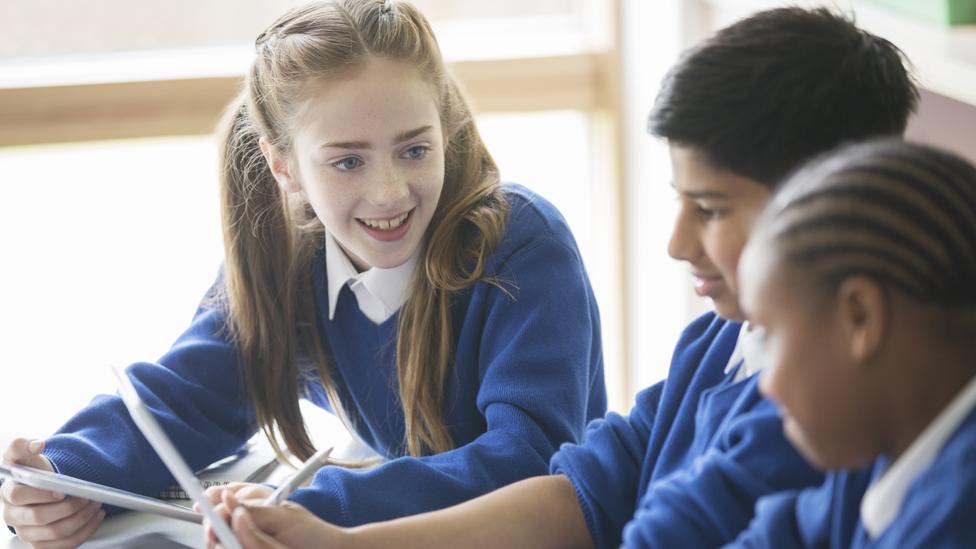Election winners face painful school cash choices - report

- Published
The party that wins the general election faces a "painful set of choices" to tackle England's schools' squeezed budgets, a report says.
The report by the group of independent economists, the Institute for Fiscal Studies (IFS), estimates schools’ costs will grow by 4% in 2024, compared with inflation of 1% across the economy as a whole.
The growth is driven by increases in staff pay, and rising food and energy costs.
"Spiralling costs" to support children with special educational needs are also taking huge chunks out of schools' available cash, the IFS says.
One of the first decisions a new education secretary will face is what pay offer to make to teachers for the start of the new school year, in September.
Teaching unions are calling for this year's pay rise to match inflation - and for extra money to be given to schools, so that any pay rises do not come out of schools' existing budgets.
Last year, thousands of schools were affected by several days of strike action by teachers over pay.
No more full strikes are planned at this stage, although the threat of future action has not been ruled out.
The IFS report says average teacher pay across the UK in 2024 is about 6% lower, in real terms, than in 2010. It says average real-term earnings across the whole economy are about 6% higher than in 2010.
The report says this relative decline in teacher pay may be the reason the government has not met its teacher recruitment targets.
Recruiting more teachers among Starmer's top pledges
- Published16 May 2024
Tories would swap 'rip-off' degrees for apprenticeships
- Published29 May 2024
Tax online giants to help kids' mental health, say Lib Dems
- Published30 May 2024
A £6bn increase in school funding since 2019 has reversed past cuts, leaving spending per pupil at about the same level in real terms as in 2010.
But rising energy and food prices are among the reasons schools are seeing a decline in their spending power - about 4% lower than in 2010, the report estimates.
'Spiralling costs'
Luke Sibieta, IFS research fellow and author of the report, told BBC News that these rising costs "have really eaten into school budgets over the last few years".
He said the "growing range of pressures on the next education secretary's to-do list" also included school building repair backlogs and the rising number of children with special educational needs and disabilities (Send).
The number of children with the highest levels of Send has increased by more than 60% since 2015 - driving a £3.5bn increase in the high-needs budget, the report says.
That has used up nearly half of the £7.6bn increase in school spending in the same time period.
Those "spiralling costs" mean special educational needs funding is "a problem that seems to be getting worse, rather than better", Dr Sibieta said.
The report says one way to save money could be closing schools or cutting teaching jobs in some areas, as pupil numbers are expected to fall by 5% over the course of the next Parliament.
Paul Whiteman, general secretary at school leaders’ union NAHT, said it would be "hugely short-sighted" for any incoming government to use the falling pupil numbers as a reason to further cut spending, and that education must be made "a national priority".
Pepe Di’Iasio, general secretary of the Association of School and College Leaders, added: “Policymakers must treat education as an investment in the future of children and young people and the future of the country, rather than as a cost that can be cut.”
Former Education Secretary Gillian Keegan has previously said that she brought up school funding in England to a record level, at £60bn a year. It is what the government had planned to spend next year, before the election was called.
One of the Labour Party’s main education pledges so far in their election campaign is to recruit 6,500 teachers, paid for through ending tax breaks for private schools.
The Liberal Democrats' education spokesperson, Munira Wilson, said the Conservatives had "failed our children".
"Parents in our community should not have to send their children to schools which have had their funding decimated by a Conservative government that has lost interest in providing high-quality education," she added.
Get in touch
Are you affected by issues covered in this story?
- Published15 April

- Published18 September 2024
